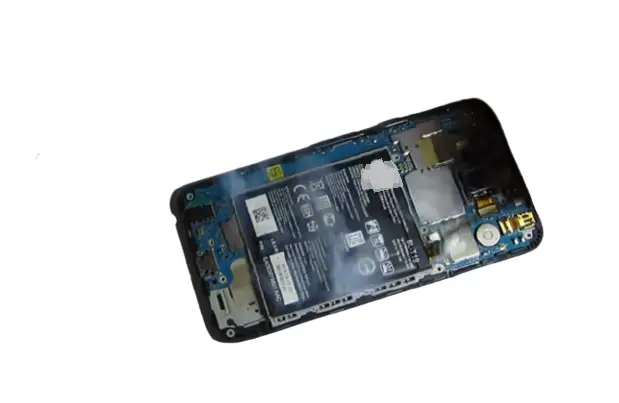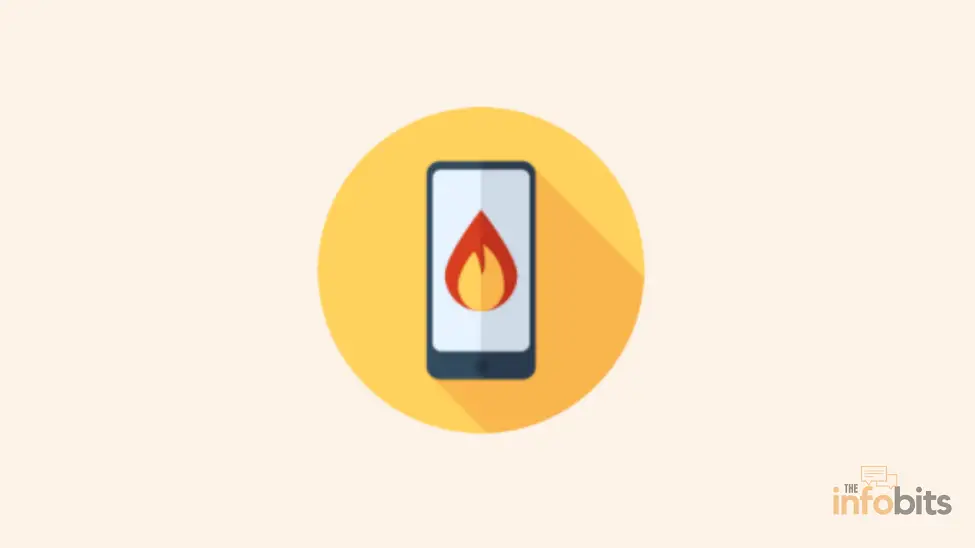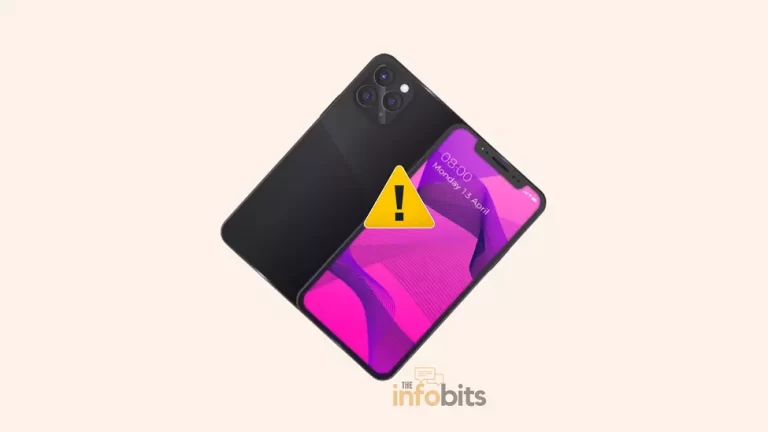Why Phone Explodes and How Can Prevent Phone Explosions?
The widespread presence of cell phones in our increasingly networked society has altered how we communicate, work, and navigate through daily life.
However, there is rising worry about phone explosions, which pose serious threats to users and their surroundings. Understanding the reasons and preventive strategies is critical for smartphone users’ safety and well-being.
This article investigates the causes of phone explosions, examines the elements that contribute to such accidents, considers the role of battery technology, offers safety recommendations, and highlights the actions to take in the event of overheating or battery troubles.
By learning more about this important topic, we can ensure a safer and more secure mobile phone experience in an ever-changing digital ecosystem.
A mobile battery burst is the most common cause of a cell phone blast or an exploding phone. Let’s try to figure out what causes a battery to explode and burst a cell phone.
Why Does a Cell Phone Explode?
a) Battery Malfunctioning
Let us not fear and imagine our phones exploding like small bombs. The fact is that the majority of phone explosions are caused by faulty batteries.
Batteries are incredible powerhouses packed into a little container, yet they may occasionally go wild. When a battery fails, it might cause overheating, which can result in a feared explosion.
Lithium batteries are used in almost all mobile devices because they are the most energy-efficient.
In recent years, however, there have been several reports of cell phone blows caused by battery rupture.
Phones can explode for different reasons, but the most frequent is the failure of the lithium-ion batteries used in the phone. These batteries are highly susceptible to specific problems or failures that might result in explosions or fires in the phone.
A few years ago, the Samsung Galaxy Note 7 caught fire due to a faulty battery and had to be recalled from the market.
Xiaomi responded after a video of someone seeing fire on a Redmi phone went viral. They made the absurd claim that a ‘non-standard’ charger caused the phone to fire without even confirming that the exploded phone was theirs.
The vast majority of cell phone explodes were caused by a mobile battery explosion, which was discovered in the vast majority of cases.
The explosion of lithium batteries is as old as lithium batteries themselves. The previous generation of lithium batteries was well conscious that charging them at higher voltages after they had reached full charge would cause them to heat up and ignite.
As a result, there were several phone blowing-up hazards in the early years because we did not use proper chargers.
b) External Factors
External causes, in addition to battery concerns, can contribute to phone explosions.
Extreme temperatures, such as leaving your phone in the hot sun or exposing it to cold, can harm your device.
Using unapproved chargers or defective charging cords can also put undue strain on your phone’s battery and raise the chance of an explosion.
c) Manufacturing Flaws
Behind our smartphones’ smooth exteriors is a complicated world of design and production.
Unfortunately, even the most well-known manufacturers can make mistakes and deliver phones with problems in design or manufacturing.
These defects may threaten the device’s stability and safety, perhaps leading to explosive implications.
d) User Negligence
It’s time for a reality check, fellow phone lovers. We also play a part in avoiding phone explosions.
User error, such as using counterfeit batteries or utilizing the phone in ways that the manufacturer did not intend (yes, we mean trying to fry an egg on your phone), can dramatically increase the danger of explosions.
So, let us exercise common sense and handle our phones with the respect they deserve.
Related: Does Fast Charging Kill Your Battery? Realities
The Truth About Battery Explosions
Modern Lithium-Ion batteries, such as those found in cell phones, have a large charge capacity and are thus quite explosive. As a result, a phone battery explosion might occur at any time if we handle the battery incorrectly.

A battery explosion can happen at any time if the conditions are right.
- The heat generated by Li-Ion batteries starts the sequence of events that leads to a mobile battery blast or mobile phone explosion.
- This could be caused by heat generated in the charging circuit or by the battery itself.
- In addition to this heat, the battery generates heat through chemical activity, which may be transmitted to the electrolyte region.
- Because of the high temperature, the electrolyte expands, causing the battery cover to explode. The battery temperature may be quite high while charging the phone, which is why phones are exploding while charging.
- The heated liquid ejected is highly combustible, causing the environment around the battery to burn or melt, potentially resulting in a mobile phone blowing up. It can also be hazardous to the user’s health.
Safety Measures in Modern Batteries
If the connections to lithium batteries are shorted, they can catch fire and burn. To avoid the dangers of nonstandard chargers or unintended terminal line shorting, battery manufacturers began to include a small protective circuit within lithium batteries.
A similar protective circuit will be included in all lithium batteries, including smartphone batteries already on the market.
This protects the battery by preventing an external/internal short circuit as well as overcharging.
Separators, a type of insulator used between the positive and negative electrodes, are used to prevent short-circuiting of cell electrodes.
Related: 9 Bad cell phone battery symptoms to be addressed immediately
Other safety features of the batteries include preventing phones from exploding,
- The circuit eliminates high-current spikes.
- Because the electrolyte contains non-flammable components, the risk of a large phone explosion is reduced.
- When the pressure in the battery exceeds a certain level, the device shuts down the circuit.
- Thermal fuses are circuit breakers that trip when the temperature exceeds a safe level.
- Excess gases generated within the battery can be vented through safety exhaust valves.
What Is the Source of the Fire in Batteries?
Why do batteries catch fire despite all of these safety precautions?
Is the issue with the charger or with the battery?
Here’s the role of the nefarious battery in action. The primary reason for this is that manufacturers are attempting to reduce weight and thickness by omitting critical safety features, which results in mechanical instability.
In some cases, however, the mobile phone blast was caused by battery electrodes shorting through low-quality chargers.
There is also a risk that the phone explodes while charging and speaking simultaneously.
Mobile phone batteries, including the Galaxy Note-7, Mi, and Oppo phones, have exploded due to mechanical instability of the batteries and a faulty separator that failed to withstand the internal short circuit.

How to Prevent Phone Explosions?
We’ve already covered the primary cause of the mobile phone battery explosion and how it leads to a total phone explosion.
Numerous other causes can result in a battery explosion and the destruction of mobile phones, which are listed below.
Along with these reasons, following the guidelines listed below, taking measures, and following best practices will help reduce the likelihood of phone explosions.
1. The Phone Has Been Dropped Accidentally
When the phone falls, all we primarily want to know is whether or not the display has been damaged.
However, if it falls hard enough, the internal structure of the battery, as well as the electrode and electrolyte alignment, may be harmed.
A significant mechanical impact on batteries may also cause the battery’s protection circuit to malfunction or fail.
As a result, the cell may swell, distort, or overheat. When a phone is dropped from a great height, it is critical to check the battery.
It is a good idea to use a nice protective case with your phone, which will safeguard the phone to some extent if it falls from a height accidentally.
2. Overheating of a Mobile Phone
Even though almost all recent model smartphones have an automatic temperature-sensing shutdown feature, we should avoid the causes of overheating.
The phone should be used in a low-temperature environment.
Excessive gaming or other CPU-intensive programs, long phone conversations, and trying to connect to Wi-Fi or cellular networks are all common causes of overheating in our daily lives.
Related: Life Span of Lithium Batteries
When the battery is being charged, it already has a slight temperature rise. Keep the following factors in mind when charging a mobile phone.
- The phone should be kept out of its case to allow for natural air circulation.
- Keep the phone away from any other cover or bag.
- Keep your phone away from heat, especially if you’re in a heated car.
- Avoid placing the phone in direct sunlight.
In the same way, you should avoid using your phone in extreme heat, you should also avoid using it in extreme cold. It is important to avoid storing your phone in places like freezers.
3. Low-Quality Chargers or the Incorrect Charger
It’s worth noting that the phone’s charger meets the requirements for charging the specific battery. Replacing it will result in incorrect charging and further deterioration of the phone.
Always use a charger that has the recommended voltage and current specifications.
Once you have a charger, you must take care of your cables. Broken wires can cause charging troubles and possibly create a fire danger.
When handling your phone charger, or any cable that connects to your gadgets, there are a few recommended practices you should keep in mind.
Avoid overwrapping wires and remember to disconnect the charger from the actual plug rather than ripping it out of the cable.
If your present charger is frayed or seems to be melted, it’s time to replace it.
4. Punctured Battery
When exposed to water or oxygen, lithium becomes extremely reactive. As a result, a punctured battery will enable direct interaction of lithium with water/oxygen.
This could result in anything from minor gas emissions with an unpleasant odor to a full-fledged explosion.
5. A Wet Phone Might Result in a Mobile Explosion
When lithium comes into contact with water, it ignites due to a chemical property, resulting in a cell phone blowing up. As we all know, modern phones are water-resistant, and a healthy battery case is also water-sealed.
This is not the case, however, when a low-cost phone is combined with a punctured battery. In any case, extreme caution should be exercised to avoid water entering the phone.
6. Low-Quality Phones
Even though current cell phones and batteries include the above-mentioned safety measures, there may be some exceptions. The majority of the time, well-known manufacturers try to incorporate safety features.
However, some local manufacturers are skipping these safety features to save money on production. They are attempting to reduce costs by incorporating low-quality electronic components and other parts.
These low-quality components may not be able to handle the regular load on the phone, causing the temperature within the phone cover to increase.
This might cause a fire on the phone’s motherboard or battery, resulting in the entire cell phone blowing up.
So stay away from those kinds of low-cost low-quality phones.
7. Keep an Eye Out for Malware
Is your phone running slower than usual? Is your phone getting hot for no obvious reason? Are you constantly annoyed by pop-ups?
You may have been infected with malware. If your phone is infected with malware, the malicious software may consume all of your phone’s resources for operations such as crypto mining, which can overheat and damage the battery.
Because of the App Store’s restrictions, the iPhone is less vulnerable to malware.
Although the Google Play Store does not offer that level of security, numerous well-known antivirus vendors do provide antivirus software for Android as part of multi-device subscriptions.
In this category, we recommend Bitdefender, Kaspersky, Norton, and McAfee.
8. Properly Charge Your Phone
Most of the time, keep your phone charged between 30-80%. There’s no need to constantly require a fully charged battery.
We also recommend that you avoid fast charging overnight if possible. However, don’t be alarmed by the rapid charging.
It will take a few years for your battery to degrade naturally. You’ll be alright if you replace your phone every 2-3 years or such.
You may lessen the danger of phone explosions and ensure a safer and more pleasurable smartphone experience by following these tips and handling your phone with care.
Stop using the phone immediately if you detect any strange activity, such as extreme heat, smoke, or swelling, and seek expert advice or contact the manufacturer.
Related: Does Fast Charging Reduce Battery Life? Realities
The Signs That Your Cell Phone Is About to Explode
If you hear hissing or cracking sounds coming from the phone, or if you smell burning plastic or chemicals, it might be damaged and about to explode.
Similarly, keep an eye out for excessive heat coming from the device, especially when it’s charging. If it’s burning hot to the touch, unplug it straight immediately.
Another key danger sign is a bulging battery, which can develop if it has been damaged or if internal components have degraded.
Any modifications to the design of your smartphone, such as a projecting screen, a wider gap, or a distended chassis, may cause the phone to no longer sit flat on a level surface.
Most new smartphones no longer enable you to remove the battery, so if you have any concerns about your device, switch it off and take it in for servicing as soon as possible.
When It Comes to Mobile Phone Batteries, Be Cautious
Keep in mind that you’re dealing with a gadget that can explode rapidly in severe circumstances.
So try to stay away from situations that cause the battery to overheat and be safe so that you can avoid the incident of an exploding phone.
Frequently Asked Questions
Is it true that all mobile phones are prone to exploding?
While phone explosions are uncommon, all mobile phones provide some amount of risk. However, by following safety rules, selecting devices from reputable manufacturers, and utilizing quality chargers and accessories, the probability of an explosion may be considerably minimized.
How can I see early warning signals of a phone explosion?
Excessive heat, bulging or swollen batteries, unexpected drops in battery life, or odd scents are all warning signals. If you detect any of these indicators, you should act quickly and get expert help to avoid any potential consequences.
Is it possible that using third-party chargers or accessories raises the danger of phone explosions?
Yes, using uncertified or third-party chargers and accessories may raise the danger of phone explosions. To guarantee the best performance and reduce potential dangers, use chargers and accessories that are suggested by the manufacturer and have received required safety certifications.
What should I do if my phone overheats or has a battery problem?
If your phone overheats or shows indications of a battery problem, turn it off immediately and remove it from any flammable or sensitive surfaces. Avoid attempting to resolve the problem on your own and instead seek the advice and support of an expert.
We hope you found this article useful, and please like and follow us on Facebook and Twitter for regular updates.
We also ask that you bookmark this page for future reference.
Sign up for our free newsletter as well to receive new information directly in your inbox and stay technically up to date.







